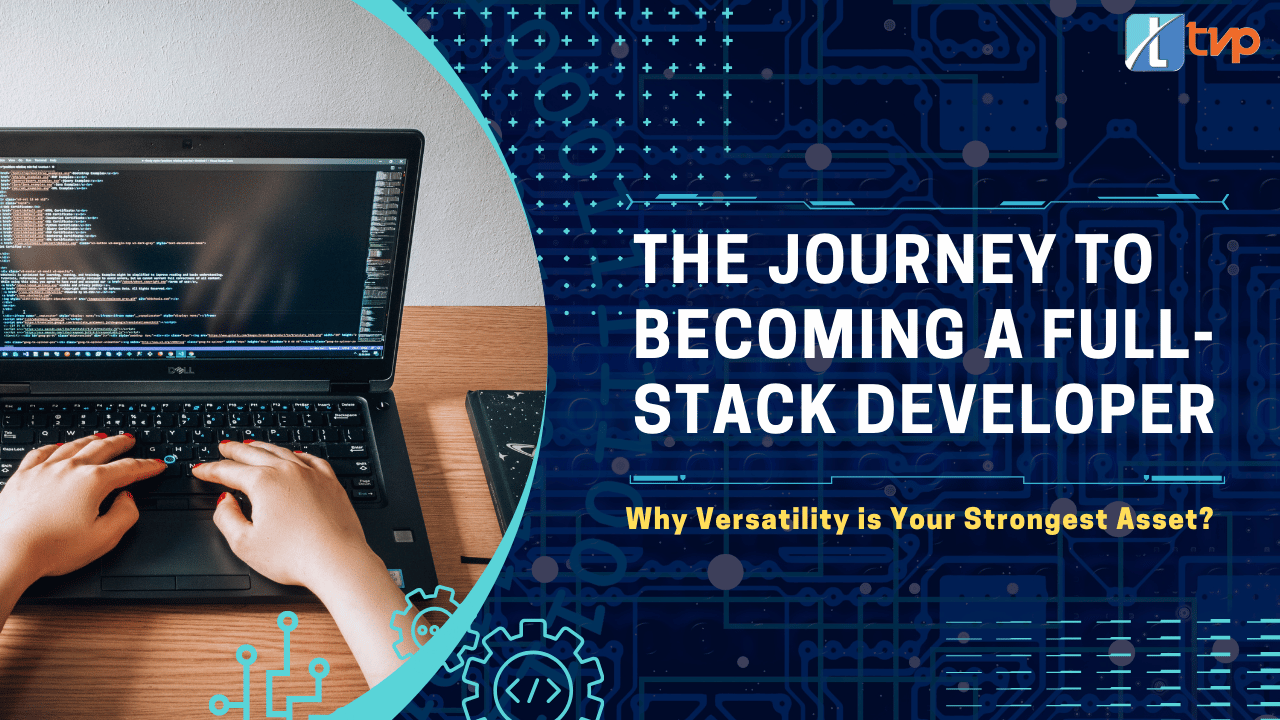The Journey to Becoming a Full-Stack Developer: Why Versatility is Your Strongest Asset
As Computer Science / IT students, you often hear debates about whether to specialize in front-end development, back-end engineering, or DevOps. It’s easy to feel pressured to choose one path early, but what if I told you that limiting yourself could close doors to exciting opportunities? The key to a fulfilling career in tech is versatility—and becoming a Full-Stack Developer is how you can achieve that.

My Professional Journey: From Trainee to Full-Stack Developer
I began my career on February 23, 2009, as a Trainee Engineer at VN Softzone under Neha Jha Ma’am. I didn’t focus on one specialization but worked on a variety of projects that required both front-end and back-end skills:
- Desktop Application for Supply Chain Management
- Inventory Management for Retail Showrooms
- Educational Application for a Deaf and Dumb Children’s Society
These projects taught me how to solve problems in different domains, preparing me for a career in full-stack development. After five months, VN Softzone was acquired by New Era Mart Pvt Ltd, and I transitioned to a Web Developer role. This shift helped me expand my skill set, designing scalable architectures and managing large applications.
Why Full-Stack Development Is the Ultimate Skillset
My transition into full-stack development came from curiosity and necessity. The tech industry is unpredictable, and opportunities often appear unexpectedly. Here’s why full-stack development is essential:
- Unpredictable Opportunities
Full-stack developers can easily adapt to any role—whether front-end, back-end, or DevOps. This versatility allows you to seize opportunities in various fields.
- Holistic Problem-Solving
Full-stack developers see the entire picture. You understand how front-end and back-end systems work together, making you a valuable team asset.
- Adaptability in a Dynamic Industry
Technology evolves quickly. Full-stack developers are better positioned to adapt to new trends because they’re not confined to one specialization.
My Advice to B.Tech Students: Build Versatility First
College is the best time to build a strong foundation in both *front-end* and *back-end* development. These skills will make you a versatile problem-solver, ready for any challenge. Here’s how to get started:
Learn the Basics
Master programming languages like C and C++, then move on to front-end development with HTML, CSS, and JavaScript. Once you're comfortable, explore server-side languages like Node.js, Python, or Java.
The Big Picture: Be Ready for Anything
Learn how databases like MySQL, Postgres, and MongoDB work and how to integrate them with back-end systems.
Work on Projects
Build full-stack applications to gain hands-on experience. This will help you see how all parts of a system fit together.
Stay Curious
Keep up with industry trends and new technologies. Staying adaptable will ensure you remain relevant in the evolving tech field.
The Big Picture: Be Ready for Anything
Looking back, my growth came from stepping outside my comfort zone and embracing new challenges. Had I specialized too early, I might have missed out on important opportunities.
To all computer science / IT students: don’t limit yourself to one path too soon.
Full-stack development equips you with the skills to adapt and thrive in an ever-changing tech landscape. Your journey is just beginning—by focusing on versatility and continuous learning, you’ll be prepared for whatever challenges arise.
In tech, the career is a marathon, not a sprint—prepare for the long haul by mastering the full stack.
 Video Tutorials
Video Tutorials Tutorials
Tutorials Articles
Articles Courses
Courses